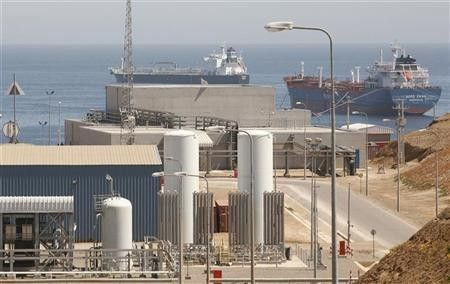Is Gazprom, The Russian Natural Gas Giant, A Serious Contender For LNG Exports?

Gazprom, Russia's huge state-run energy company, will struggle to compete in the liquid natural gas market, say analysts who responded to last week's announcement by the CEO of Gazprom's plans to increase investment in and production of LNG.
“Our goal is to account for around 15 percent of the global LNG market,” Alexey Miller said at a shareholders' meeting.
Gazprom, which currently owns about 5 percent of the global LNG market, sold 22 LNG cargo loads to 10 countries worldwide last year, Miller said.
While Russia holds the world's largest natural gas reserves, according to the Oil & Gas Journal, it has relied on pipelines to export most of it. Miller said LNG transport has an advantage over pipelines since it can be shipped directly by sea without having to go through other countries.
Gazprom is now looking toward the Asia-Pacific to export most of its LNG since that region has an increasing demand for the commodity. On June 22 Gazprom and a consortium of Japanese companies signed a memorandum of understanding on a venture called the Vladivostok-LNG project that will result in a large facility that converts natural gas into LNG. The first part of the project will have an annual capacity of 5 million tons and be commissioned in 2018.
According to the U.S. Energy Information Agency, Japan is the world's largest importer of LNG and relies on LNG imports for essentially all of its natural gas demand.
While Gazprom may seek to claim 15 percent of the LNG market in the future, the number of LNG projects as well as other variables may make it hard for the Russian company to compete against global rivals.
“Gazprom doesn’t always operate according to market principles, but if it did, I think it would be very difficult for it to compete,” said Charles Ebinger, director of the Energy Security Initiative at the Brookings Institution in Washington. “When looking at the U.S. situation we were skeptical how much U.S. natural gas can be exported because after 2020 we see a huge volume of LNG coming on the market.”
Gazprom in recent years has faced difficulties since it has been forced to sell natural gas to Russian consumers at below-market prices. Previously it could make up for the subsidies by selling large volumes of gas to Europe at higher rates, but that has changed, thanks in part to the changing natural gas landscape in the U.S. Also, natural gas that was once destined for the U.S. has now found a new home in Europe.
By investing in LNG, Gazprom will be able to diversify its market, but Ebinger warns that most of the gas going to the Asia-Pacific will come from the Arctic Ocean, where it is extremely costly to produce gas.
“I think the market will be saturated, so for Gazprom to take a big market share without massively priced discounting I think will be difficult,” Ebinger said.
© Copyright IBTimes 2024. All rights reserved.





















